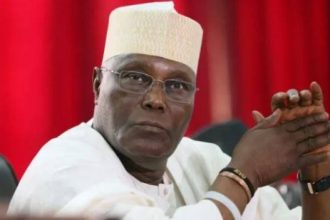Some financial experts on Tuesday identified access to finance, supply chain disruptions and shift to digital business as challenges being faced by women entrepreneurs amid COVID-19 pandemic.
The experts made the submission at a webinar organised by the Nigerian Stock Exchange (NSE) and the International Finance Corporation (IFC) in Lagos.
The theme of the webinar was “Gender Implications of COVID-19 on Women Entrepreneurship: Supporting SME’s and Women-owned Businesses in the Corporate Value Chain”.
Mr Bola Adeeko, Divisional Head, Shared Services, NSE said that women were likely to face more negative impact due to the pandemic.
Adeeko said that Micro, Small and Medium Enterprises were at the centre of the pandemic.
He, however, assured that the Exchange would always collaborate with stakeholders in the financial sector to drive the United Nations Sustainable Development Goals, especially goal 5 which speaks on gender equality.
“Women-owned businesses face hindrances expanding their businesses and lack access to finance,” he said.
Adeeko noted that the NSE would strengthen collaborations with stakeholders to promote women businesses in the country.
He said that NSE would encourage business owners to thrive, not only at this challenging time but after the pandemic.
Ms Angela Kariuki, of the Sourcing to Equal Kenyan Projects, said that the pandemic had affected businesses with some losing their jobs.
Kariuki said that COVID-19 had exposed the existing gender gaps in the economic field, security, health and safety and decision-making globally.
She said that the impact of COVID-19 on women entrepreneurs was majorly on finance, supply chain disruptions, shift to digital business, adjusting operations, mental health and employment support.
“Ninety per cent of Women-owned Small and Medium Scale Enterprises (WMSMEs) faced a decrease in sale and reduction in cash flow; 62 per cent of small businesses are unable to deliver on existing contracts due to logistics challenges.
“Also, 87 per cent of WMSMEs plan to sell online due to COVID-19; increase in e-commerce; 34 per cent of WMSMEs increased anxiety, and that situation has reduced productivity,” she said.
Mr Yessual Russel, Nigeria Country Director, WeConnect International said that the challenges women faced in the midst of the pandemic include low technological capacity, unlike their male counterparts.
Russel said: “At WeConnect, we identify with women entrepreneurs because if you do not link women in the value chain of corporate enterprises, you will not be empowering them at all.
“Apart from low technology capacity, unlike their male counterparts, women also had low collaborations among themselves in business,” he said.
Rusell said they also had low access to sufficient finance to enable them to compete with their male counterparts.
He expressed hope that since the business environment was gradually opening up, there would be an improvement, and called for structures to incorporate more women in the corporate value chain.
Ms Soromidayo George, Director, Corporate Affairs and Sustainable Business, Ghana and Nigeria, Unilever Plc said that empowering women in business had a vital role to play in the economy.
George said that equality, fairness among others were key to sustainable economic development because women control about 60 per cent of consumer spending globally.
She said that Unilever had programmes of gender inclusiveness, especially empowering female-headed households across the country, training women and actively participating in women rights along the supply chain.
Mrs Chizoma Okoli, Executive Director, Business Banking, Access Bank Plc, identified information to knowledge, technology and access to finance as barriers to women entrepreneurship in Nigeria.
Okoli said that the bank had developed several programmes and initiatives to support women businesses.
“One of such programmes is the Pitch a Ton where women are selected for grants, capital and funds for growth.
“They also learn to grow their businesses, access to markets, initiate websites and e-commerce.
“This year, we have taken it a little further by partnering with other corporates to empower additional five other pitches after the first five who will win N10 million,” she said.
Okoli said that the bank had a designated distributorship financing desk for women, noting that the female was more resilient than their male counterparts.
Ms Adenike Adeyemi, Executive Director, Fate Foundation said that women adapt to knowledge faster.
She said the foundation was providing capacity building on good governance to meet the requirements of investors and support women.
Mr Peter Bankole, Director, Enterprise Development Centre, Lagos Business School, said that capacity building goes beyond training but takes the entire notch.
He said the school had a programme in collaboration with Standard Chartered Bank known as ‘Women in Technology’.
Bankole said that women had the capacity to retreat for a while in the midst of crisis, but were always innovative to quickly take away.











